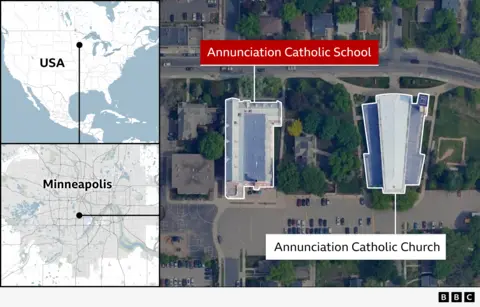In a historic announcement from Vatican City, Cardinal Robert Francis Prevost has been elected as the 267th pope of the Roman Catholic Church, marking a milestone as the first American to lead the global Catholic community. Prevost, who has adopted the papal name Leo XIV, was elected by a group of 133 cardinals after just two days of voting—the shortest conclave since 1900.
As he rises to prominence, the new pope faces considerable decisions regarding the direction of the Church in the wake of his predecessor Pope Francis, who passed away last month. The expectations are high as Leo XIV must choose whether to continue the inclusive policies championed by Pope Francis or initiate his own path amid a global Church's diverse demands.
Hailing from Chicago and aged 69, Leo XIV brings with him a wealth of experience garnered from over two decades of service in Peru, where he was a bishop, and as the leader of his international religious order. His extensive pastoral background includes proficiency in Spanish and Italian, aiding his outreach to the faithful globally. Known for his humility and commitment to social issues, many expect him to build upon the community engagement that characterized Pope Francis's papacy, though opinions vary on how he will address the inclusion of L.G.B.T.Q. Catholics and other sensitive topics.
As the bells tolled and crowds gathered in St. Peter’s Square, chants of “Leo, Leo, Leo” erupted in excitement. Cardinal Dominique François Joseph Mamberti, the senior cardinal deacon, first announced the new pope, who is now tasked with addressing critical issues within the Church, including the response to clerical sexual abuse and the ongoing discourse on women's roles.
While the new pontiff remains reserved about his specific intentions, the Church eagerly anticipates his inaugural public address, which will set the tone for his leadership and doctrinal focus in the years to come.
As he rises to prominence, the new pope faces considerable decisions regarding the direction of the Church in the wake of his predecessor Pope Francis, who passed away last month. The expectations are high as Leo XIV must choose whether to continue the inclusive policies championed by Pope Francis or initiate his own path amid a global Church's diverse demands.
Hailing from Chicago and aged 69, Leo XIV brings with him a wealth of experience garnered from over two decades of service in Peru, where he was a bishop, and as the leader of his international religious order. His extensive pastoral background includes proficiency in Spanish and Italian, aiding his outreach to the faithful globally. Known for his humility and commitment to social issues, many expect him to build upon the community engagement that characterized Pope Francis's papacy, though opinions vary on how he will address the inclusion of L.G.B.T.Q. Catholics and other sensitive topics.
As the bells tolled and crowds gathered in St. Peter’s Square, chants of “Leo, Leo, Leo” erupted in excitement. Cardinal Dominique François Joseph Mamberti, the senior cardinal deacon, first announced the new pope, who is now tasked with addressing critical issues within the Church, including the response to clerical sexual abuse and the ongoing discourse on women's roles.
While the new pontiff remains reserved about his specific intentions, the Church eagerly anticipates his inaugural public address, which will set the tone for his leadership and doctrinal focus in the years to come.




















